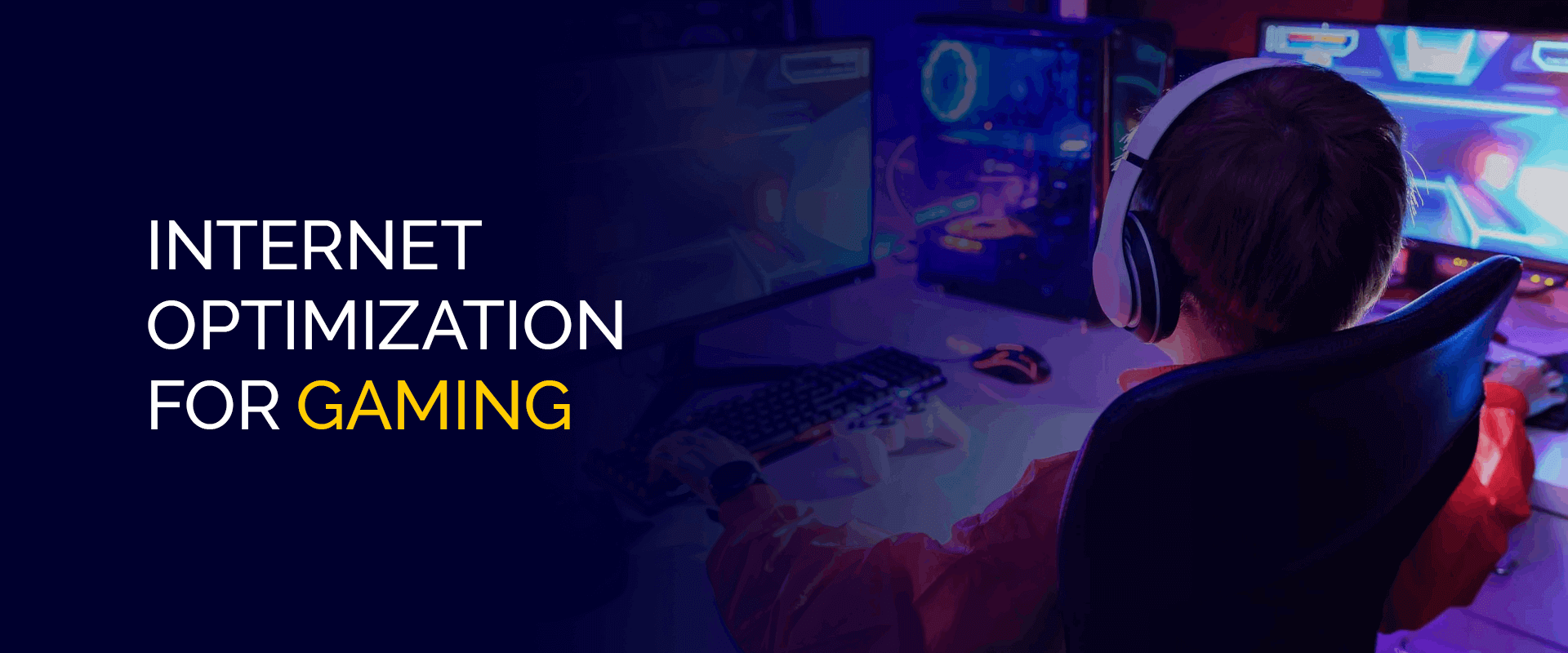Introduction
Gaming has evolved beyond a mere pastime; it’s a competitive sport, a source of entertainment, and a global community. Whether you’re a casual player or a professional eSports athlete, the importance of a well-optimized network cannot be overstated. This blog post delves into the intricacies of gaming network optimization, helping you unlock the full potential of your online gaming experience.
Understanding the Gamer’s Dilemma
Online gamers are no strangers to the frustrations of lag and latency. These issues can lead to missed shots, delayed actions, and a subpar overall gaming experience. To tackle these problems effectively, it’s essential to understand the common network-related challenges gamers face.
Latency: Latency refers to the time it takes for data to travel from your device to the game server and back. In gaming, lower latency is better, as it minimizes the delay between your actions and their execution in the game.
Packet Loss: Packet loss occurs when data packets sent from your device fail to reach the game server or vice versa. This can result in glitches, rubber-banding, or even disconnections from the game.
Jitter: Jitter is the variation in latency, causing inconsistent response times. It makes the gaming experience unpredictable and frustrating.
Bandwidth: While bandwidth is often mentioned in the context of internet speed, it’s not always the main issue for gamers. A stable and consistent connection is more critical than a high bandwidth.
Optimizing Your Gaming Network
Now that we understand the challenges, let’s dive into the steps you can take to optimize your gaming network and ensure a smoother gaming experience.
- Choose a Wired Connection
A wired connection is more stable and reliable than Wi-Fi. While Wi-Fi is convenient, it can introduce interference, signal fluctuations, and higher latency. If possible, connect your gaming device directly to the router using an Ethernet cable. - Prioritize Gaming Traffic with QoS
Most modern routers support Quality of Service (QoS) settings, which allow you to prioritize gaming traffic over other types of internet traffic. By assigning higher priority to gaming packets, you can ensure that your gaming data gets transmitted with minimal delay. - Optimize Your Router Settings
Your router’s settings can significantly impact your gaming experience. Make sure to check for firmware updates regularly and configure settings like NAT type, UPnP, and port forwarding to enhance your connectivity. - Reduce Background Applications
Background applications and downloads can consume your available bandwidth and cause latency spikes. Close unnecessary programs and applications running in the background to free up bandwidth for your gaming. - Choose the Right Gaming Server
In many online games, you can manually select the game server you connect to. Choosing a server geographically closer to your location can reduce latency. Additionally, if the game offers dedicated servers, consider using those for a more stable connection. - Use a Gaming VPN
A Gaming VPN (Virtual Private Network) can reduce ping times and packet loss by routing your connection through optimized gaming servers. Some VPN services are specifically designed for gaming and can help you connect to the closest and fastest game servers. - Regularly Update Your Hardware
Outdated network hardware can be a bottleneck in your gaming network. Ensure your modem, router, and gaming device’s network interface are up-to-date to take advantage of the latest technologies and improvements.
The Future of Gaming Networks
As online gaming continues to grow in popularity, the demand for optimized gaming networks will only increase. Game developers, internet service providers, and technology companies are investing in solutions to further reduce latency and improve the gaming experience. Gamers can expect even more reliable connections and innovative technologies in the coming years.
Conclusion
Gaming network optimization is not a one-size-fits-all solution, as it often depends on your specific gaming setup and the games you play. However, by understanding the key factors that affect your gaming experience and implementing the tips provided in this blog post, you can significantly improve your gaming network’s performance. Remember, every millisecond counts in the world of online gaming, and a well-optimized network can be the difference between victory and defeat. Happy gaming!


